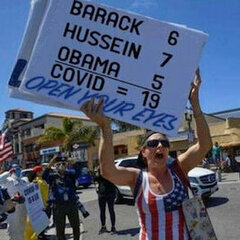Search the Community
Showing results for '#egypt'.
-
Je li ovo jedan od razloga zašto je pogođena zgrada obaveštajne službe. Baš čudno da pogode zgradu gdje su najveći inkriminirajući dokazi protiv režima. It’s a history that the U.S. government knows all too well — because, at times, it has exploited the Assad regime’s brutality for its own ends. Arar was sent to Assad’s prisons by the United States: In September 2002, the U.S. Immigration and Naturalization Service (INS) detained him during a layover at New York’s John F. Kennedy International Airport. U.S. officials believed, partially on the basis of inaccurate information provided by Canada, that Arar was a member of al-Qaida. After his detention in New York, Arar was flown to Amman, Jordan, where he was driven across the border into Syria. “Successive U.S. administrations may not agree with the politics of Bashar al-Assad, but when you have a common enemy called al-Qaida — that changes everything,” Arar said. “[S]ince 9/11, Assad’s regime has been used for what the media now calls ‘torture by proxy.’ ” In Arar’s case, however, he had no actual ties to al-Qaida to confess. He was eventually released in October 2003, and both Syria and Canada admitted that they had no evidence tying him to terrorism. Canadian Prime Minister Stephen Harper issued a former apology to Arar, and announced that the government would pay him a settlement of almost $10 million for his ordeal. Arar currently resides in Canada. After the 9/11 attacks, the CIA’s use of extraordinary rendition — the practice of sending terrorism suspects to a third country for interrogation, including the use of methods that may be illegal in the United States — “expanded beyond recognition,” journalist Jane Mayer wrote in The New Yorker. In addition to Syria’s prisons, detention facilities in Egypt, Morocco and Jordan were also key destinations for such subjects, who were flown around the world on private jets registered to dummy American corporations, according to Mayer. Arar was far from the only detainee that the CIA threw in Assad’s prisons. In December 2001, the United States requested that Moroccan authorities arrest Mohammad Haydr Zammar, a German citizen suspected of aiding al-Qaida’s Hamburg cell, which was a key player in the 9/11 attacks. Once Zammar was apprehended, according to information obtained by British journalist Stephen Grey, he was interrogated by CIA officers in Morocco and then flown to Damascus, where — like Arar — he was held in the Palestine Branch. The cooperation between the American and Syrian intelligence agencies was close enough that the CIA even offered German intelligence officers the opportunity to put specific questions to Zammar while he was in Assad’s prisons, according to Grey’s book, “Ghost Plane: The True Story of the CIA Rendition and Torture Program.” Nothing is known of Zammar’s whereabouts or health since he sent a letter to his family in Germany in 2005. “Globalizing Torture,” a report published by the Open Society Justice Initiative, provides the names of 136 detainees who were subjected to extraordinary rendition or secret detention. Of those detainees, at least eight were sent by the CIA to Assad’s jails. They include people who seemingly posed little or no danger — such as Noor al-Deen, a Syrian teenager captured with Abu Zubaydah, who the United States initially believed was a top al-Qaida operative but would later admit had never been a member of the terror group. They also include legitimately dangerous figures such as Abu Musab al-Suri, who was released by the Assad regime and subsequently became one of the world’s leading jihadist ideologues. Despite the wide range of disagreements between the Bush administration and Assad, U.S.-Syrian intelligence cooperation in pursuit of al-Qaida represented a détente of sorts between the two governments. When ties soured in 2006, a parliamentarian close to Assad’s feared domestic enforcer, Assad Shawkat, told U.S. diplomats that Shawkat “still considered himself a friend of the United States.” In February 2010, when U.S. officials were trying to persuade Assad to stem the flow of jihadists into Iraq, intelligence chief Gen. Ali Mamlouk told a U.S. delegation in Damascus: “President Assad wants cooperation, [and] we should take the lead on that cooperation.” https://www.denverpost.com/2014/01/23/us-cia-once-found-syrian-torture-useful/
-

Kladža pt2
Miljenko replied to Miljenko's topic in Kladionica, fantasy, zezalice i ostale lepe stvari...
Fudbal 0/1. MLB 0/3. Hokej 2/4 (1.65 i 2.33 izlazne kvote). NFL 2/5 (2.75 i 2.50 kvote). Na fudbalu nasi odigrase pomalo neverovatnih 0-0. Ne bih se proslavio ni da sam sire odigrao. MLB dolazi sve losije, sto je playoff blizi; vise ni fiks ne pomaze. Na hokeju sam se bezveze izleteo fiksom (ok za siri tiket, no za jaci, eventualno NHL, a i kod njih je cista sreca). Golovi korektno. NFL over sam odigrao previse hrabro, no tu su bili poeni po cetvrtinama da izvuku bilans. Ne bas sjajan dan, no bar se nisam ispucao na fudbalu. Minimalni ulozi. Fudbal Belgium-Israel 3+ France-Italy 2+ Kvota 1.90. Ponovo samo jedan glavni tiket, uz poduzi siri. Prateci tiket, Norway 2+, Austria X2, Iceland 2+, Uruguay 1X, Brazil 2+, Colombia X2, South Africa 1X, Sierra Leone 1X, Togo 1X, Morroco 2+, Egypt 1X, Senegal 1X, Ivory Coast 1X, Mali 1X, Nigeria 1X. Kvota 10.06. MLB Chicago Cubs-NY Yankees >8.5 (Wicks-Gil) Milwaukee-Colorado tim1 4+ (Montas-Feltner) Miami-Philadelphia tim2 4+ (Cabrera-Wheeler) NY Mets-Cincinnati tim1 4+ (Manaea-Cruz) Kansas-Minnesota tim1 3+ (Ragans-Matthews) Oakland-Detroit tim2 3+ (Spence-Skubal) San Diego-San Francisco tim1 4+ (King-Black) LA Dodgers-Cleveland >8.5 (Knack-Boyd) Kvote 2.44, 2.24, 2.09, 2.03 i 1.73. Probah samo timske poene i obicne pluseve. Bar se covek ne nervira ko ce dobiti na kraju. Hokej Rungsted-Roedovre 7+ (OT&SO) Aalborg-Frederikshavn 6+ Herlev-Odense 5+ (OT&SO) Salzburg-Skelleftea 4+ Pelicans-Farjestads 4+ Bremerhaven-Servette 4+ Lausanne-Trinec 5+ (OT&SO) Straubing-Sonderjyske 6+ Rouen-KAC 6+ Kvote 1.98, 2.03, 1.53, 1.77, 1.80 i 1.68. Nesto veci broj tiketa, posto imamo CL i Dance. Siri hokejaski tiket, Avangard 1X, Yekaterinburg 1X, Dynamo Moscow 1X, Vladivostok X2. Kvota 3.14. NFL Philadelphia-Green Bay >48.5 Philadelphia-Green Bay 1. cetvrtina >12.5 Philadelphia-Green Bay 2. cetvrtina >16.5 Philadeelphia-Green Bay 3. cetvrtina >12.5 Philadelphia-Green Bay 4. cetvrtina >16.5 Kvote 1.82, 2.65, 1.95, 2.43 i 2.50. Za drugu cetvrtinu je najvisa granica bila 19.5, te uzeh srednju. Takodje se nisam izletao kod klasicnog plusa; dovoljna je kvota oko 1.80. -

Kladža pt2
Miljenko replied to Miljenko's topic in Kladionica, fantasy, zezalice i ostale lepe stvari...
Fudbal 6/10 (1.20, 1.41, 1.60, 1.89, 1.23 i 1.39 dobitne kvote). MLB 5/9 (1.77, 1.50, 1.82, 1.72 i 2.02 kvote). KBO 1/5 (2.12 kvota). Teska je muka igrati reprezentacije na fudbalu. Fiks nije siguran ni na 1.20, a golovi su tek nemoguci za procenu. MLB granicno, Padresi volsebno izgubise i treci put od dosta slabijeg rivala (plus je svaki put bio minus). Bejzbol van MLB me ne ide preterano; neefikasan dan juce u JK. Sve u svemu, traljavo. Minimalni ulozi. Fudbal Gibraltar-Wales 4+ Netherlands-Canada 1 Netherlands-Canada 3+ Malawi-Sao Tome and Principe 1 Egypt-Burkina Faso 1 Senegal-DR Congo 1 Algeria-Guinea 1 Kvote 1.71, 1.34, 1.64, 1.16,1.45, 1.38 i 1.52. Danas uglavnom fiks, mada je bas tesko uklopiti nesto. MLB Toronto-Baltimore >8.5 (Kikuchi-Povich) Oakland-Seattle 2 (Sears-Woo) Pittsburgh-LA Dodgers 2 (Falter-Buehler) Pittsburgh-LA Dodgers tim2 6+ Washington-Atlanta 2 (Parker-Reynaldo Lopez) NY Yankees-Minnesota tim1 5+ (Stroman-Pablo Lopez) St. Louis-Colorado 1 (Sonny Gray-Quantrill) Chicago White Sox-Boston 2 (Woodford-Houck) San Diego-Arizona >8.5 (Vasquez-Cecconi) Kvote 1.90, 1.66, 1.53, 2.14, 1.55, 1.98, 1.41, 1.42 i 1.88. Naslo se dosta toga zanimljivog i u zavrsnicu solidnog broja serija (ima nekih koje tek krecu). NBA Boston-Dallas >216.5. Kvota 2.06. Prilicno niska granica za ofanzivni potencijal finalista. taman da se otvori laganim prolazom. Nisam se proslavio sa bejzbolom van MLB ponovo. Probah NPB (Japan), no samo jedan over na 6 utakmica i to sa ovim smesnim granicama od pretezno 5.5. Ipak je Juzna Koreja tu jedini pravi materijal za poene. -
Egypt’s Civil Work Alliance, Haya Karima launch massive aid convoys for Gaza https://www.egypttoday.com/Article/1/127674/Photos-Egypt’s-Civil-Work-Alliance-Haya-Karima-launch-massive-aid
-
A pitao sam se zasto Egipcani drze zatvorenu granicu prema Gazi... izgleda je mnogo komplikovano kao sve na Bliskom Istoku: https://www.newarab.com/news/egypt-indefinitely-closes-rafah-border-gaza#:~:text=Since 2007%2C Egypt and Israel,rules the occupied West Bank. TL;DR: Palestinci nemaju gde da pobegnu iz Gaze, nakon sto su im Izraelci velikodusno ponudili da se sklone ili umru.
-

Kladža pt2
Miljenko replied to Miljenko's topic in Kladionica, fantasy, zezalice i ostale lepe stvari...
Fudbal 0/2 (na jednom tiketu se ceka A. Madrid tim1+, za kvotu oko 2.60, te tu ocekujem siguran prolaz). NHL 1/2 (2.20 dobitna kvota). Hokej 1/3 (4.59 kvota), a prosao je i prateci tiket iz Austrije (3 para, 4+ kvota). NBA 1/2 (2.16 kvota), tu je i fiks kombinacija (2+ kvota, 4 para). NFL 2/2 (2.44 i 4.08 kvote). Fudbal ponovo traljavo. Verovatno ci imati pomenuti prolaz, no to je i dalje preslabo. NHL i NBA na granici prihvatljivog, mada nista bez kombo tiketa. Mali bonus u fiksu u NBA sektoru, iako su kvote minorne. Na hokeju imam dosta srece kod pojedinih liga, posto stalno uklapam jedine dobitne parove. Za razliku od subote, NFL se lepo uklopio; taman da sanira mesecni bilans. Dobar dan na kraju (fudbalom sigurno nisam odusevljen). Minimalni ulozi. Fudbal Vikingur Reykjavik-Leiknir 5+ Fylkir-IR Reykjavik 5+ Venlo-Den Haag 3+ De Graafschap-PSV II 3+ Ajax II-Groningen 3+ Brighton-Wolves 3+ Leicester-Ipswich 3+ Kvote 3.20, 3.94 i 2.94. Relativno hrabro odigrano danas, mada je lakse kada nije sve u singlu (u smislu da se manje novca rizikuje). Tu je i tiket na cekanju, te se nadam makar ok bilansu (2 prolaza). Prateci tiket, sve 2+, Ivory Coast, Nigeria, Ghana, Egypt. Kvota 3.02. NHL Boston-Winnipeg tim1 2+ New Jersey-Vegas tim2 2+ Arizona-Pittsburgh tim2 3+ Vancouver-Chicago tim1 4+ LA kings-San Jose tim1 4+ Kvote 2.31 i 2.72. Tesko je odluciti sta odigrati u NHL delu, kada su mecevi ovako neefikasni. Siri NHL tiket, sve pob (OT&SO), Boston, Vegas, Pittsburgh, Vancouver, LA Kings. Kvota 9.11. NBA Detroit-Milwaukee tim2 >127.5 Philadelphia-San Antonio tim1 >123.5 Minnesota-Charlotte tim1 >117.5 Phoenix-Chicago tim1 >114.5 Dallas-Boston >232.5 Sacramento-Atlanta >230.5 Kvote 2.61, 2.67 i 2.16. I kod NBA postaje tesko razluciti sta je verovatno, a sta ne, no igramo se i dalje (priblizava se i MLB polako). Siri NBA tiket, Milwaukee pob2, Philadelphia pob1, Minnesota pob1, Boston H2(+4.5), Phoenix H1(+2.5), Sacramento pob1. Kvota 3.16. -
Peter Menzel and Faith D’Aluisio: Hungry Planet: What the World Eats (2004) Germany: The Sturm Family of Hamburg. Food Expenditure for One Week: € 253.29 ($325.81 USD). Favorite foods: salads, shrimp, buttered vegetables, sweet rice with cinnamon and sugar, pasta Italy: The Manzo family of Sicily. Food expenditure for one week: 214.36 Euros or $260.11. Favorite foods: fish, pasta with ragu, hot dogs, frozen fish sticks. China: The Dong family of Beijing. Food expenditure for one week: 1,233.76 Yuan or $155.06. Favorite foods: fried shredded pork with sweet and sour sauce. Japan: The Ukita family of Kodaira City. Food expenditure for one week: 37,699 Yen or $317.25. Favorite foods: sashimi, fruit, cake, potato chips. Chad: The Aboubakar family of Breidjing Camp. Food expenditure for one week: 685 CFA Francs or $1.23. Favorite foods: soup with fresh sheep meat. United States: The Revis family of North Carolina. Food expenditure for one week: $341.98. Favorite foods: spaghetti, potatoes, sesame chicken. Bhutan: The Namgay family of Shingkhey Village. Food expenditure for one week: 224.93 ngultrum or $5.03. Family recipe: Mushroom, cheese and pork. Egypt: The Ahmed family of Cairo. Food expenditure for one week: 387.85 Egyptian Pounds or $68.53. Family recipe: Okra and mutton. Listajte dalje i uživajte: https://time.com/8515/what-the-world-eats-hungry-planet/
-

Dobra plata, dobro mesto, jeftin real estate
Gojko & Stojko replied to noskich's topic in Lokal-patriotizam i dijaspora
Bezobrazno lažeš, za $100 po danu (kod tebe je vrtić jeftiniji) bi plaćao vrtić $24000 godišnje, što je sa pokrivanjem države od 50% $12000 ili $1000 mesečno. Minimalna satnica u plutokratskoj Australiji je $20.33 na sat, znači manje od 50 sati mesečno da bi zaradila te pare, ako bi radila na sat (na toliku zaradu se ne plaća nikakav porez). Da ne pričamo o plati od $40000 ili $50000 godišnje. Minimum wage The national minimum wage is $772.60 per week, for a 38 hour week, or $20.33 per hour. Pa kad dođeš iz okruženja gde živiš od rente izdajući lokal za supermarket i ne radiš ništa kao Oblomov, naravno da ti nije ništa dovoljno dobro, osim mog stojka u ustima. Evo kako izgleda kad neko nije razmaženi Oblomov kao ti nego vredan kao ovaj Egipćanin iz jučerašnjih novina: Why there’s a flight simulator hidden in the back of an EzyMart in Sydney’s CBD ... Mr Abdelwahed moved his family to Hurghada, a beach resort town in Egypt on the Red Sea, where he worked for Egypt Air and lived “like a king” on a salary 10 times the average wage, living at the Marriott Hotel and socialising at the hunting club. He fixed all the European and US aircraft in Egypt and flew around the world signing off on plane safety predeparture. But with Egypt still recovering, he worried about the opportunities available to his children. He tried living in the US, but found it unsafe and felt police were suspicious of him as a Muslim man from the Middle East. “Come to Australia,” a friend said. “In Australia all people are equal, and you can live however you want.” He flew to Sydney on August 3, 2018. His friends picked him up from the airport and took him to his new apartment, where they had stocked the fridge with food. People he had not even met helped him move his furniture and buy a car. “Why are you helping me like this?” Mr Abdelwahed asked. “It’s not normal.” “Because here, we don’t have any issues against each other,” they replied. “All of us help each other to get better.” Mr Abdelwahed is living in Yagoona in Sydney’s west on a student visa, which he hopes to convert into a Global Talent Independent Visa based on his expertise in electrical engineering on five different aircraft models. He is consulting for Egypt Air and has a job offer from a local aviation consultancy company. Although he can work in technical support or consulting, he is still waiting to have his qualifications as an aircraft maintenance engineer recognised. ... He said he had never felt more welcome than he does in Australia. “I tell my friends that they’re the best people I’ve ever met in my life.” SaE -
Hamas oslobodio taoce i eto pomoći: The United States on Tuesday sent the first of three military planes to Egypt to bring vital humanitarian aid for Gaza during a truce between Israel and Hamas, US officials said. The relief flights carrying food, medical supplies and winter gear are the first by the US military since the conflict began with the October 7 attacks by Hamas on Israel. The flights start a day after President Joe Biden said he would use an extension of the truce to get more aid into Gaza, and as international efforts continue to further prolong the pause.
-

Kladža pt2
Miljenko replied to Miljenko's topic in Kladionica, fantasy, zezalice i ostale lepe stvari...
Fudbal 1/3 (1.55 dobitna kvota). NHL 3/5 (1.77, 2.70 i 2.85 kvote). Prosao je tiket MLB predsezone (5+ kvota, 4 para, kvota 1 na jednom). Fudbal smehotresno lose. Portugal jedva 4 gola, protiv slabasnog protivnika; mocni San Marino prima samo 2 komada; Slovacka igra 0-0 kod kuce protiv Luksemburga. Italijane i Engleze bih tesko odigrao i na 2+. NHL donosi pristojna 3 prolaza, pri cemu sam imao tiket sa oba promasaja. Tu je i neocekivani bonus u MLB sektoru. Moglo je bolje, posto sam imao previse sirih tiketa na fudbalu. Minimalni ulozi. Fudbal Sweden-Belgium 2+ France-Netherlands 2+ Gibraltar-Greece 3+ Serbia-Lithuania 3+ Austria-Azerbaijan tim1 dobija bar jedno poluvreme Egypt-Malawi tim1 dobija bar jedno poluvreme South Africa-Liberia tim1 dobija bar jedno poluvreme Nigeria-Guinea Bissau 2+ Senegal-Mozambique 2+ Tunisia-Libya 2+ Nicaragua-St. Vincent&The Grenadines 3+ Grenada-USA 3+ Kvote 1.77, 1.87, 1.37, 1.52, 1.76 i 1.88. Danas izmiksovah golove i novu fiks igru koju nadjoh. Ovako u fiksu imam dve prilike za prolaz, kao da se dva meca igraju. Prateci tiket, Bulgaria 2P1+, Poland 2P1+, Greece P1+, Moldova P1+, Austria 2P1+, France P1+, Serbia P1+, Sweden 2P1+, Nigeria 2P1+, Cape Verde 2P1+, South Africa 2P1+, Burkina Faso 2P1+, Egypt 2P1+, Equatorial Guinea 2P1+, Senegal 2P1+, Cameroon 2P1+, Tunisia 2P1+, St. Lucia P1+, Trinidad and Tobago P1+, Nicaragua P1+, USA P1+, Guatemala P1+. Kvota 285.73. NHL Columbus-NY Islanders pob2 (OT&SO) Colorado-Arizona pob1 (OT&SO) Kvota 1.87. Jedna skromna kombinacija danas, i to oba para u fiksu. NBA Golden State-Philadelphia >228.5 LA Lakers-Oklahoma >225.5 Memphis-Houston tim1 >121.5 Sacramento-Phoenix >233.5 Boston-Indiana pob1 Toronto-Detroit pob1 Utah-Milwaukee pob2 Kvote 2.21, 2.40 i 1.54. Ne kapiram u cemu je fora sa ovim kasnim izbacivanjem granica za poene. Valjda je teze proceniti hendikep nego poene, ako timovi nisu kompletni. Siri hokejaski tiket, Bolzano 4+, Salzburg pob1 (OT), Rungsted 4+, Tappara pob2 (OT), Ilves pob2 (OT), RB Munich pob1 (OT), Mannheim pob1 (OT), Stavanger 4+, AK Bars pob1 (OT), Slovan Bratislava pob1 (OT), Kosice pob1 (OT), Vaxjo tim 2+, Skelleftea tim 2+. Kvota 27.92. -

Kladža pt2
Miljenko replied to Miljenko's topic in Kladionica, fantasy, zezalice i ostale lepe stvari...
NHL 0/1. NBA 2/2 (3.71 i 3.48 dobitne kvote), prosao je kombo tiket (13+ kvota), kao i siri fiks tiket (6+ kvota, 6 parova). Hokej 2/3 (3.46 i 3.11 kvote). NHL i dalje slabunjavo; Carolina daje samo jedan gol, kao prilican favorit. NBA je zato prijatno iznenadio; prolazi kombo tiket, ali i kombinacija sa fiksevima, za poveci plus. Evropski hokej ponovo odlican, prolaze dve fine kvote. Nije se skoro desio ovakav plus (10+ uloga), sa relativno sitnom uplatom. Minimalni ulozi. Fudbal St. Maarten-Guadeloupe 3+ US Virgin Islands-Aruba 3+ USA-Trinidad 4+ Luxembourg-BIH 2+ Liechtenstein-Portugal 4+ Cyprus-Spain 3+ Egypt-Djibouti 4+ Nigeria-Lesotho 3+ Algeria-Somalia 4+ Bolivia-Peru 2+ Venezuela-Ecuador 2+ Argentina-Uruguay 2+ Saudi Arabia-Pakistan 5+ UAE-Nepal 4+ Iran-Hong Kong 4+ Qatar-Afghanistan 4+ Oman-Chinese Taipei 3+ Kvote 2.68, 2.07, 2.77, 2.86, 2.06 i 2.07. Reprezentacije su uvek rizicna stvar za igru (malo vremena/prostora za uigravanje pre svega), no probah tikete po zonama. NHL LA Kings-Florida 6+ Seattle-NY Islanders 5+ (OT&SO) Calgary-Vancouver 6+ Ottawa-Detroit 7+ (OT&SO) Montreal-Vegas tim2 3+ Columbus-Arizona 6+ Pittsburgh-New Jersey 7+ (OT&SO) Chicago-Tampa 7+ (OT&SO) Kvote 2.59, 3.46 i 2.99. Pratimo NHL i dalje, mada NBA dolazi neuporedivo bolje. Prateci tiket, sve prva trecina 2+, Ottawa, Vegas, Pittsburgh, Columbus, Tampa, Vancouver, Florida. Kvota 32.86. NBA Miami-Brooklyn tim1 >108.5 Golden State-Oklahoma tim1 >110.5 Kvota 2.66. Samo 2 utakmice danas, te nije bilo nekog izbora. Verovatno bih prskocio, no parovi deluju zgodno za timske poene. Hokej Augsburg-Eisberen 6+ Wolfsburg-Schwenninger 5+ (OT&SO) Comet-Valerenga 7+ (OT&SO) Storhamar-Frisk Asker 6+ Severstal-SKA St. Petersburg 5+ (OT&SO) Lokomotiv Yaroslavl-Kunlun tim1 2+ Spartak Moscow-Salavat 4+ AK Bars-Dynamo Moscow 4+ Kvote 2.22, 2.37 i 2.31. Miks granica i timskih golova, u Evropi dolazi bolje nego u NHL sektoru (zbog vecih kvota pre svega). -
Što ih nikako ne čini u rangu sa Danskom, niti bilo kojom drugom evropskom državom, pa ni Srbijom. https://www.mylifeelsewhere.com/compare/denmark/egypt
-
https://english.aawsat.com/arab-world/4598426-sisi-egypt-won’t-allow-termination-palestinian-cause-expense-other-parties https://www.bbc.com/news/uk-67095846
-
Interesantan ugao iz NYT ( author je bivši Obamin izaslanik za Bliski istok): It appears Hamas wants to draw Israeli soldiers into a quagmire, as Hezbollah did in Southern Lebanon from 1985 to 2000. After years of fighting, Israel suffered a humiliating and chaotic withdrawal, leaving an empowered and threatening Hezbollah on its northern border. Why might Hamas want to draw the Israel Defense Forces into a bloody ground battle? Hamas is the uncontested power in Gaza, though elections have not been held since 2006. The Palestinian Authority; its main political party, Fatah; the business community; civil society; and family clan leaders cannot effectively challenge Hamas, which has become only stronger after each successive conflict with Israel. Despite an Israeli blockade and round-the-clock surveillance, Hamas has apparently been able to build and buy more rockets, steadily improve their range and accuracy, provide offensive combat training for its fighters and develop an intelligence network sophisticated and far-reaching enough to launch a simultaneous assault on 22 Israeli locations. Hamas surely believes it can defeat the Israelis on its home turf in a war of attrition. Hamas also stands to expand its political credibility in the West Bank if Israel invades Gaza, particularly if Israeli advances stall. Many Palestinians in the West Bank already regard the Palestinian Authority, which administers parts of the Israeli-occupied West Bank, as corrupt, enfeebled and unable to realize the aspirations of its people. Israel’s July incursion into the West Bank city of Jeninfurther highlighted that the government of the president of the Palestinian Authority, Mahmoud Abbas, can neither protect the people of Jenin nor provide a vision of a more hopeful future. If Israel invades Gaza, Hamas may have the public support to challenge the Palestinian Authority in the West Bank and potentially assume leadership as the sole representative of the Palestinian people. In the broader region, Hamas can also count on its ally Hezbollah. The day after the Hamas attack in southern Israel, Hezbollah, presumably in an attempt to test the readiness of Israeli forces, engaged in fighting with the Israeli military along the northern border near Shebaa Farms, land that is controlled by Israel but claimed by Lebanon. Hezbollah may seek to gain advantage if Israel is fighting Hamas in Gaza and the West Bank. ADVERTISEMENT Despite its grotesque atrocities against civilians, Hamas may have already reset the political realignment in the Middle East by disrupting prospective diplomatic talks between Israel and Saudi Arabia. But if Gaza were now to escalate into a protracted ground war, Hamas could also undermine the Abraham Accords, which established agreements between Israel and the United Arab Emirates and Bahrain, and break the trend of increasing Arab-Israeli normalization. The Palestinian Authority was unable to block the Abraham Accords, but Hamas could still unwind them. Israel, of course, can count on U.S. support as it takes its next steps. The Biden administration has sent a carrier strike group to the eastern Mediterranean Sea, in what it has said is a “deterrence posture” that will provide the Israel Defense Forces with “additional equipment and resources, including munitions.” The national security adviser, Jake Sullivan, reaffirmed U.S. support for Israel immediately after President Biden’s news conference on Tuesday. Over the next week or so, Israel could destroy much of Hamas’s infrastructure. The Israel Defense Forces will channel the outrage of the nation if it launches a ground invasion of Gaza and will exact an enormous price for Hamas’s massacre in the Kfar Aza kibbutz. And yet operationally, Hamas complicates the Israel Defense Forces’ freedom of action, given that it holds at least 150 hostages. If a ground war drags on, Israel would make battlefield gains but almost certainly fail to destroy Hamas’s governing ideology or the Palestinians’ unrealized aspirations for statehood. To avoid the Gaza trap, Israel needs Arab allies on the ground and in the region. Saudi Arabia, the United Arab Emirates, Egypt and Jordan have all regarded Iran, Hamas, Hezbollah, the Houthi rebels in Yemen and the Muslim Brotherhood as a collective strategic threat. To gain the support of the key regional leaders, Israel will have to offer major security concessions and intelligence in the event of a wider war with Iran and set a meaningful and clear political horizon for a post-Abbas, post-Hamas Palestinian state. Yet Mr. Netanyahu faces a steep credibility gap both domestically and with Israel’s Arab neighbors. Only a true unity government may be able to blunt the Hamas threat with breakthrough diplomacy in the region. That success might cost him his job.
-
Co-Chairs’ Statement of the 27th GCC-EU Joint Council and Ministerial Meeting The Joint Council expressed deep concern about the grave developments in Israel and Gaza and condemned all attacks against civilians. It called for the protection of civilians, reminding the parties of their obligations under the universal principles of international humanitarian law. It further called for restraint, the release of hostages and allowing access to food, water and medicines according to International Humanitarian Law, stressing the urgent need for a political solution to the crisis to avoid repeating this vicious cycle of violence. The EU and the GCC Ministers are resolved to deplore violence and urge restraint and calm on all sides and agreed to continue consultations and to remain engaged. The Joint Council called for a halt to all acts of violence and any unilateral measures and supported the efforts of Saudi Arabia, the European Union and the League of Arab States to revive the Middle East peace process in cooperation with Egypt and Jordan, to help put an end to the violence and start the path toward peace and security. The EU and the GCC Ministers reiterated their commitment to a two-state solution, living securely side-by-side, based on the 1967 lines, in accordance with the Arab Peace Initiative and all relevant UN resolutions, the maintenance of the historical and religious status quo of the holy sites in Jerusalem, and a just and fair settlement for refugees. They stressed the importance of sustained financial support for UNRWA, the Palestinian Authority, and for the humanitarian and development needs in the Occupied Palestinian Territory.
-
The majority of Palestinians – over 5 million – are refugees. About one-third of the Palestinian refugee population are spread out across 58 UNRWA-administered refugee camps in the OPT, Jordan, Lebanon, and Syria. In addition, there are an estimated 10,000 unregistered refugees in Iraq, and a further 50,000 in Egypt. Palestinian refugees also make up 68 per cent of Gaza's population. UN Resolution 194 (1948), which enshrines the right of return of Palestinian refugees, remains at the heart of Palestinian national consensus. While UNRWA administers health, education, and other services in the camps, refugees organise themselves politically through popular committees. Refugee staff of UNRWA are organised within the Local Staff Union and regularly mobilise against UNRWA reduction of their employment or services in the camps. Palestinian political movements and factions emerged from the refugee camps, and continue to serve as recruiting grounds and as locations of political contestation. In the OPT, the camps played a major role in the resistance against the Israeli occupation in the First and Second Intifadas. Recent years have seen Palestinian Authority security forces clash in refugee camps such Jenin and Balata, allegedly with Fatah activists loyal to Mohammed Dahlan. Although Palestinian factions such as Fatah and Hamas maintain a strong presence in refugee camps in Lebanon (outside of Lebanese security control) these have however witnessed the rise of Salafi-jihadist factions such as Fatah al-Islam. Refugee camps in Syria, meanwhile, play host to a number of pro-Syrian Palestinian groups such as the PFLP-GC.
-
Sve si u pravu for once, @Spooky, ali pazsad, jedan Egipat zabranio nošenje nikaba u školama https://www.middleeasteye.net/news/egypt-bans-niqab-schools Kako se sad postaviti prema ovome, da li je u pitanju represivna odluka vojne hunte koji dodatno ugnjetava već ugnjetene građanke... ili je pak i taj nazadni režim ćoravih koka ubo zrno i malo liberalizovao nesrećno društvo koje stege tradicije drže za grlo poput pustinjske hijene? Draganče na aparatima, čeka se izveštaj kolegine žene o novom razvoju situacije!
-
Household electricity cost to mine 1 Bitcoin: 🇱🇧 Lebanon: $0.26k 🇮🇷 Iran: $0.53k 🇮🇶 Iraq: $3.9k 🇪🇬 Egypt: $7.2k 🇳🇬 Nigeria: $7.7k 🇶🇦 Qatar: $8.5k 🇦🇷 Argentina: $9k 🇺🇦 Ukraine: $10.7k 🇻🇪 Venezuela: $12.2k 🇲🇾 Malaysia: $12.5k 🇰🇿 Kazakhstan: $12.9k 🇧🇩 Bangladesh: $13.8k 🇵🇰 Pakistan: $13.8k 🇵🇾 Paraguay: $14.6k 🇷🇺 Russia: $14.9k 🇨🇳 China: $19.9k 🇮🇳 India: $21k 🇹🇼 Taiwan: $24.2k 🇮🇩 Indonesia: $25.5k 1 #Bitcoin : $26k 🇲🇽 Mexico: $26.3k 🇰🇷 South Korea: $29k 🇨🇦 Canada: $33.2k 🇿🇦 South Africa: $39.3k 🇮🇸 Iceland: $39.6k 🇧🇷 Brazil: $45.5k 🇺🇸 USA: $46.3k 🇵🇭 Philippines: $47.3k 🇳🇴 Norway: $48.4k 🇳🇿 New Zealand: $50k 🇯🇵 Japan: $64.1k 🇺🇾 Uruguay: $67.3k 🇫🇮 Finland: $98.1k 🇸🇪 Sweden: $113.8k 🇬🇧 UK: $130.6k 🇮🇪 Ireland: $159.6k 🇩🇪 Germany: $163.3k 🇦🇺 Australia: $184.3k 🇮🇹 Italy: $208.5k
-
Venom masi poentu zestoko. Ja sam bas gledao Gods of Egypt i Exodus tako da se dobro secam koliko se mediji i tada ismevali sto anglosaksonci glume egipcane. BTW, filmovi su sranje nevezano za to
-
FEMI KUTI, Barutana, nedelja 23.07.2023. Baba očekivano razvalio. Gledao sam ga već 2011. na Exitu na Fusion bini. Tada je i naš Igor Vince prvi put nastupio sa Femijem. Bio je to divan, vreo, afrički dan za pamćenje, jer su pre njega, doduše na Mainu, nastupili Amadou & Mariam. Ne mogu da se setim da li je i tada bio ovako mlad bend kao sinoć, ali svejedno, na oba koncerta sve je bilo na mestu. Femi očigledno voli da ga zovu Baba, a neko iz publike je to često dobacivao. Rase, ti li si? Stvorila se izuzetna interakcija publike i benda, svi oko mene su bili u transu, uhvaćeni u prirodnom ritmu Majke Afrike. Femi je vrlo energičan i posvećen u svemu što radi (svira, peva, igra, priča...). Bilo je više pesama nego kada sam ga prvi put gledao. Kako vreme odmiče, njegove pesme su sve kraće. Na poslednjem albumu ima nekoliko od 2-3 minuta. Jednu pesmu na koncertu je skratio zbog tehničkih problema (nije se čula gitara). Sorry, Sorry je svakako bio vrhunac. "Srećom" njegove pesme o socijalnoj nepravdi i diktatorskom režimu su nam vrlo bliske, pa smo mogli uz ples i iskreno da zapevamo npr. "You Can't Fight Corruption With Corruption". Stajao sam čas u prvom, čas u drugom redu, pored Igorove majke kojoj smo pomogli da se snađe sa telefonom i napravi fotografije i video fajlove. Na kraju nastupa na bini se pojavila i prelepa Kubanka, Igorova supruga koja je igrala sa Femina tri vrtiguza. Jedna od tri igračice je Femina supruga, jedno triput mlađa od njega. Pri predstavljanju benda Igor je dobio najviše ovacija. Zasluženo, savršeno se uklopio u bend. Femino negiranje doprinosa Tony Alena u formiranju afrobita jednostavno ne stoji. Čuvena je Felina izjava: "Without Tony Allen, there would have been no Afrobeat." Bez obzira što Femi tvrdi "Ja sam 1962. godište, bio sam prisutan kada je Fela davao instrukcije Tonyju", mislim da je očigledno u pitanju lični animozitet prema Tonyju. Za kraj tradicionalno Felina "Water No Get Enemy". Milozvučna duvačka sekcija, ritmično nas gazi krdo slonova... Barutana je izuzetno prijatan prostor za ovakve svirke. Stigao sam dosta ranije i izujedaše me komarci. Pala mi je na pamet "Mosquito Song" Feminog brata Seuna. Srećom komarci nestadoše pred početak koncerta. Gledao sam Seuna 2018. godine i on mi je za nijansu ipak bolji. Možda je razlog i to što je nasledio bend Egypt 80 od oca. U subotu 22.07. u poslednjem trenutku odustajem od koncerta Goblina u Punk Rock Cafeu (Smederevska Palanka). Bio sam kod rodbine u blizini. Odlučujuće je bilo sećanje da se do SP stiže putem kroz neku šumu, a oluja je prognozirana baš u vreme povratka.
-

Kladža pt2
Miljenko replied to Miljenko's topic in Kladionica, fantasy, zezalice i ostale lepe stvari...
Fudbal 2/3 (1,39 i 1.40 dobitne kvote). MLB 0/1. NPB 1/2 (2.52 kvota). KBO 0/1. Fudbal tragikomicno i sa ovim malim kvotama; Crnogorci i madjari nisu mogli bar do jednog gola. MLB i dalje u silaznom trendu (potro sam sav plus iz prve nedelje meseca). Japanci korektni, prolazi fina kvota. KBO sam mozda mogao odigrati bolje, posto su svi parovi otisli u over. Traljav dan. Minimalni ulozi. MLB Houston-Cincinnati 1 (Blanco-Weaver) LA Dodgers-San Francisco 5I H1(+0.5) (Gonsolin-Webb) San Diego-Tampa 5I H2(+1.5) (Musgrove-Chirinos) Chicago Cubs-Baltimore >7.5 (Taillon-Kremer) Kvote 2.49 i 2.37. Probrah par meceva iz danasnjeg programa, mada ovaj vikend nije sjajan, kladionicarski gledano. Prateci tiket, Atlanta 1, Washington >7.5, NY Mets >8.5, LA Angels 2, Texas 5I H1(+0.5), Philadelphia 2. Kvota 12.36. Fudbalski tiket, Netherlands 2+, Spain 2+, Niger 1+, Ghana 1+, Togo 1+, Algeria 1+, Burkina Faso 1+, Mali 1+, Egypt 2+, Venezuela 1+, Paraguay 2+. Kvota 4.53. -
Not for sale: A vendor and his cat at the Khan al Khalili bazaar, Cairo, Egypt
- 7966 replies
-
- 10
-

-

-

DOOM! DOOM IS UPON US! (Raspad naseg drustva, pbp)
vememah replied to Аврам Гојић's topic in Društvo
Global cancer mortality for both sexes: table Number ASR / 100,000 World 9,894,402 100.1 Mongolia 4,465 175.9 Serbia 27,820 150.6 Hungary 32,637 148.1 Montenegro 1,752 144.5 Slovakia 16,192 140.7 Samoa 218 139.8 Zimbabwe 10,517 137.1 Poland 118,309 136.8 Croatia 14,216 132.7 French Polynesia 479 131.7 Romania 53,974 130.9 China 2,992,600 129.0 Moldova 8,289 127.8 Bosnia and Herzegovina 9,142 127.3 Uruguay 8,534 127.1 Armenia 6,038 125.8 Papua New Guinea 7,006 124.9 Latvia 5,768 123.6 Barbados 742 121.8 Lithuania 8,114 121.6 Turkey 125,788 119.9 Jamaica 4,571 119.8 France, New Caledonia 463 119.5 Bulgaria 19,322 119.0 Belarus 21,175 117.6 Laos 6,170 117.0 Guam 287 116.9 Estonia 3,980 115.8 Slovenia 6,550 115.4 Denmark 17,270 113.3 Russia 310,528 113.2 North Macedonia 4,192 112.9 Namibia 1,823 112.2 Malawi 12,303 111.7 Cuba 26,759 111.5 Uganda 22,819 111.5 Singapore 12,106 111.3 Georgia 8,041 111.3 South Africa 56,259 110.7 North Korea 39,827 110.4 Cabo Verde 488 107.6 France 184,636 107.5 The Netherlands 48,868 107.5 Egypt 88,063 107.4 Brunei 432 107.1 Greece 33,007 107.0 Mali 10,100 105.9 Czechia 27,302 105.7 Vietnam 122,279 105.6 Argentina 69,563 105.5 Ireland 10,295 104.1 Haiti 9,205 103.6 Portugal 29,951 103.4 Trinidad and Tobago 2,236 103.3 Gaza Strip and West Bank 2,879 102.8 Burundi 5,645 102.5 Kenya 26,872 102.4 Cyprus 2,433 102.3 Zambia 8,597 102.1 Germany 250,937 102.0 Ukraine 83,608 101.9 Suriname 658 101.5 Belgium 29,954 101.0 Thailand 123,883 99.8 Bahamas 467 99.8 UK 177,628 99.6 Philippines 92,165 99.6 Fiji 825 98.4 Dominican Republic 11,929 98.1 Mozambique 17,639 97.9 Kazakhstan 20,820 97.8 Myanmar 52,276 97.7 New Zealand 10,328 97.7 France, La Réunion 1,520 97.7 Cambodia 12,534 96.1 Austria 22,353 95.4 Paraguay 6,496 94.6 Syria 12,807 94.4 Iran 78,646 93.4 Venezuela 30,567 93.2 Tanzania 26,679 93.1 Canada 86,053 92.9 Norway 11,929 91.4 Italy 173,469 90.6 Brazil 256,954 90.2 Azerbaijan 10,333 90.1 Spain 112,335 90.0 Israel 12,896 89.8 Guinea 5,807 89.4 Liberia 2,572 89.3 Somalia 7,301 89.1 Jordan 6,143 87.8 Libya 4,728 87.8 Luxembourg 1,167 87.6 French Guiana 219 87.6 Morocco 35,096 87.4 Kyrgyzstan 4,639 87.4 Côte d’Ivoire 11,663 87.3 Sweden 24,380 87.0 Chile 28,323 86.8 Malaysia 29,332 86.7 Senegal 7,793 86.2 Madagascar 13,601 86.0 US 607,636 85.7 Cameroon 13,096 85.7 France, Guadeloupe 844 85.3 Peru 34,570 84.6 São Tomé and Príncipe 103 84.5 Iraq 19,683 84.3 Angola 12,349 84.3 Indonesia 232,302 84.2 Finland 13,340 84.0 Lebanon 6,302 84.0 Iceland 641 84.0 Colombia 54,272 83.7 Switzerland 18,903 82.9 Burkina Faso 8,559 82.9 Turkmenistan 4,296 82.9 Saint Lucia 232 82.8 Australia 47,452 82.2 Guinea-Bissau 824 82.1 Bolivia 9,845 81.5 Japan 418,978 81.3 Honduras 6,340 80.8 Rwanda 5,981 80.4 Eswatini 601 80.3 Ghana 15,714 80.1 Afghanistan 15,796 79.8 Malta 963 79.6 Costa Rica 5,965 79.4 France, Martinique 880 79.4 Tunisia 11,742 78.0 Nicaragua 4,517 77.2 Mauritania 2,094 77.2 Togo 3,383 77.1 Comoros 403 76.8 Chad 6,000 76.2 Central African Republic 1,940 76.1 Sierra Leone 3,337 75.6 Ecuador 14,909 75.5 Yemen 11,969 75.5 South Korea 88,262 75.3 Equatorial Guinea 587 75.3 Algeria 32,407 75.2 Bangladesh 108,470 75.0 Congo, Democratic Republic of 34,185 74.4 Albania 3,935 74.2 Nigeria 77,755 73.7 Ethiopia 50,778 73.6 Lesotho 1,237 73.6 Puerto Rico 5,523 73.4 Pakistan 114,862 72.8 Maldives 264 72.8 Mauritius 1,502 72.3 Uzbekistan 20,746 72.0 South Sudan 4,569 71.2 Gabon 1,024 71.0 Eritrea 1,642 70.8 Guatemala 9,460 69.7 Panama 3,733 69.7 Vanuatu 149 69.4 Benin 4,607 68.5 Solomon Islands 308 68.5 Guyana 565 67.7 Belize 213 66.4 El Salvador 5,244 66.2 Bhutan 454 66.2 The Gambia 809 65.6 Qatar 703 64.4 Bahrain 592 64.2 Oman 2,019 64.1 Djibouti 519 64.1 Tajikistan 3,825 63.8 Kuwait 1,718 63.5 India 846,960 62.7 Mexico 89,172 62.6 Sudan 16,794 62.1 Botswana 1,094 62.1 Timor-Leste 539 61.9 Niger 7,212 60.8 Sri Lanka 16,520 56.6 Congo, Republic of 1,593 56.6 United Arab Emirates 1,877 55.1 Nepal 13,523 54.4 Saudi Arabia 12,986 50.9 https://www.wcrf.org/cancer-trends/global-cancer-data-by-country/ -

Kladža pt2
Miljenko replied to Miljenko's topic in Kladionica, fantasy, zezalice i ostale lepe stvari...
Fudbal 2/3 (1.52 i 1.70 dobitne kvote), prosao je prateci tiket (20+ kvota, 8 parova, timski golovi i ili kombinacije). NHL 7/10 (1.22, 1.70, 1.87, 1.31, 1.46, 1.56 i 1.26 kvote). Hokej 4/5 (1.70, 1.26, 1.48 i 1.51 kvote). Na fudbalu je kombo volsebno pao, nakon sto su reprezentacije prosle, a par iz Holandije 2 pao. Na sirem tiketu uhvatih svasta; kod njega je prednost sto odigram nesto, sto bih tesko probao u singlu. NHL solidno, mada su dva para zakazala sa golovima (posebno onaj u Torontu), dok su Rangersi bili egal mec. Evropski hokej takodje blizu ukupnog prolaza, no zavrsni par zavrsava bez gola u trecoj trecini. Ok dan na kraju, mada je plus mogao biti dosta veci, uz malo srece u dnevnom delu. Minimalni ulozi. Fudbal Bahrain-Serbia tim2 2+ Egypt-Belgium 3+ Kvote 1.56 i 1.72. Nize lige bolje da cuvam za siri tiket. Prateci tiket, Thun gg ili 3+, Xamax gg ili 3+, De Graafschap gg ili 3+, Portsmouth gg ili 3+, Larne 3+. Kvota 6.04. Hokej Salzburg-Vorarlberg tim1 >2.5 Villach-Innsbruck 7+ (OT&SO) Ajoie-Rapperswil 5+ (OT&SO) Ambri-Kloten 5+ (OT&SO) Michalovce-Zvolen 5+ (OT&SO) Kvote 1.18, 1.52, 1.23, 1.26 i 1.30. Nesto opreznija varijanta danas, posto statistika ne deluje toliko primamljivo (posebno kod Nemaca). Siri hokejaski tiket, CSKA Moscow tim2 >1.5, Mountfield tim1 >2.5, Poprad 5+ (OT&SO), Augsburg 5+ (OT&SO), Frankfurt 5+ (OT&SO), Mannheim tim2 >1.5, Kolner tim1 >1.5, Herning 5+ (OT&SO), Rungsted 5+ (OT&SO). Kvota 13.40. NBA Philadelphia-Milwaukee >211.5 Memphis-Oklahoma tim1 >116.5 New Orleans-Boston >220.5 Utah-Phoenix tim2 >111.5 Kvote 1.45, 1.60, 1.49 i 1.60. Nakon analize odsutnih igraca, skratih igru na 4 para. Siri NBA tiket, Washington >211.5, Charlotte >211.5, Indiana >228.5, Chicago tim1 >114.5, Golden State tim1 >117.5. Kvota 8.65. -

Antijudaizam i antisemitizam - filozofsko-semanticke, istorijske i druge perspektive
Prospero replied to Yoda's topic in Istorija i filozofija
When Iraq Expelled Its Jews to Israel—The Inside Story by Edwin Black Human rights writer Edwin Black is the New York Times bestselling author of IBM and the Holocaust, War Against the Weak and The Farhud. He can be found at www.edwinblack.com. Immigrants from Iraq arriving in Israel. After Hitler’s defeat in May 1945, many Nazis melted away from the Reich, smuggled out by such organizations as the infamous Odessa group and the lesser-known Catholic lay network Intermarium, as well as the CIA and KGB. They ensured the continuation of the Nazi legacy in the postwar Arab world. Egypt was a prime destination for German Nazi relocation in the Arab world. Dr. Aribert Heim was notoriously known as “Dr. Death” for his grotesque pseudo-medical experiments on Jewish prisoners in the Sachsenhausen, Buchenwald, and Mauthausen concentration camps. He was fond of surgical procedures including organ removals without anesthesia, injecting gasoline into prisoners to observe the manner of death, and decapitating Jews with healthy teeth so he could cook the skulls clean to make desk decorations. Dr. Heim converted to Islam and became “Uncle Tarek” Hussein Farid in Cairo, Egypt, where he lived a happy life as a medical doctor for the Egyptian police. Two of Goebbels’s Nazi propagandists, Alfred Zingler and Dr. Johann von Leers, became Mahmoud Saleh and Omar Amin respectively, working in the Egyptian Information Department. In 1955, Zingler and von Leers helped establish the virulently anti-Semitic Institute for the Study of Zionism in Cairo. Hans Appler, another Goebbels propagandist, became Saleh Shafar who, in 1955, became an expert for an Egyptian unit specializing in anti-Jewish and anti-Zionist hate propaganda. Erich Altern, a Gestapo agent, Himmler coordinator in Poland, and expert in Jewish affairs became Ali Bella, working as a military instructor in training camps for Palestinian terrorists. A German newspaper estimated there were fully 2,000 Nazis working openly and under state protection in Egypt. Franz Bartel, an assistant Gestapo chief in Katowice, Poland, became El Hussein and a member of Egypt’s Ministry of Information. Hans Becher, a Gestapo agent in Vienna, became a police instructor in Cairo. Wilhelm Boerner, a brutal Mauthausen guard, became Ali Ben Keshir, working in the Egyptian Interior Ministry and as an instructor for a Palestinian terrorist group. Egyptian society was so enamored with the Nazi war against the Jews that a young army officer felt compelled to write a postwar letter to Hitler via the Cairo weekly, Al Musawwar, as though Hitler were still alive. “My dear Hitler,” the officer wrote. “I congratulate you from the bottom of my heart. Even if you appear to have been defeated, in reality you are the victor. You succeeded in creating dissensions between Churchill, the old man, and his allies, the Sons of Satan … Germany will be reborn in spite of the Western and Eastern powers … The West, as well as the East, will pay for her rehabilitation—whether they like it or not. Both sides will invest a great deal of money and effort in Germany in order to have her on their side, which is of great benefit to Germany … As for the past, I think you made mistakes, like too many battlefronts and the shortsightedness of [Foreign Minister Joachim von] Ribbentrop vis-a vis the experienced British diplomacy … We will not be surprised if you appear again in Germany or if a new Hitler rises up in your wake.” The letter was signed “with affection” by Col. Anwar Sadat, later president of Egypt and the first Arab leader to sign a peace treaty with Israel. Egypt was hardly alone in reinventing the Nazi war against the Jews. German Nazis also took up postwar positions of influence in Syria, Lebanon, and Iran. But Iraq, long a Nazi Arab stronghold, was arguably among the most agitated in the Arab world. From the moment Hitler took power in 1933, Iraq began distinguishing itself throughout the Arab world as a top Nazi ally. The nexus was continually stoked by resident gestapo agents such as Fritz Grobba. Grobba employed such tactics as dispensing lots of cash among politicians and deploying seductive German women among ranking members of the army. From 1933, Radio Berlin began broadcasting hate messages in Arabic including fallacious reports about non-existent Jewish outrages in Palestine. Grobba, cultivated many Iraqis as surrogate Nazis. Iraqi Arab Hitler-style youth marched in Nuremburg torch light parades hosted by their Berlin counterparts. German was taught in Iraqi schools. When World War II broke out in 1939, Nazism became a fervent cause among many Iraqis. In May 1941, Iraqi fascists backed by popular support tried to overthrow the pro-Western monarchy and seize British oil fields in Iraq to facilitate the oil-dependent German advance east to Russia. That failed. The Iraqi coup plotters in Baghdad decided to do the next best thing, exterminate its Jews in a single blow. Jews were ordered to stay in their homes, and their doors were marked with a red hamsa. At the last minute, the extermination plot fell apart. But as the coup leaders fled, in that momentarily power vacuum on June 1-2, 1941, dejected swarms of soldiers, in concert with police, common criminals and non-descript mobs rampaged through Baghdad hunting for Jews. They were easily found. Hundreds of Jews were cut down by sword and rifle, some decapitated. Babies were sliced in half and thrown into the Tigris river. Girls were raped in front of their parents. Parents were mercilessly killed in front of their children. Hundreds of Jewish homes and businesses were looted, then burned. The carnage continued unabated for almost two days until finally the British-backed monarchy was induced to restore order. This Holocaust-era pogrom became known as the Farhud. In Arabic, it means “violent dispossession.” Throughout the last years of the war, the murder spree was celebrated across the Arab world and in German ceremonies. At war’s end, in mid-1945, hundreds of thousands of dispossessed European survivors emerged from their ghettos, concentration camps, and forests, desperate to enter Jewish Palestine to restart their lives. However, rather than stirring humanitarian notes in Iraq, the European Jewish plight only heightened hatred against Arab Jews, especially in Iraq. Many mainstream Arabs resented and belittled the Holocaust as nothing more than another ploy for expanding Jewish Palestine’s population. This view was little more than a continuation of the virulent wartime preaching of Hitler ally, Haj Amin al-Husseini, aka the Grand Mufti of Jerusalem. Many Iraqis seemed driven more by their obsession with Jewish Palestine and perpetuating Nazi precepts and AN anti-Jewish campaign than by a desire to rebuild their country or strengthen their democracy. Everything escalated fiercely in February 1947, when the United Nations agreed to vote on the question of Palestine’s partition. The 1937 Peel Commission’s recommendation for partition had now evolved from a white piece of paper into a binding international ballot among the world’s governments. The possibility of a legitimized and recognized Jewish State in the midst of Arab lands in Palestine was more than unthinkable. The Palestine conflict still dominated and defined the Iraqi national agenda, paralyzing Iraqi action on its other vital needs, such as the economy, infrastructure, health services, and education. The country’s newspapers warned that if “the Zionist entity” came into nationhood, no Iraqi government could control the Arab Street in Baghdad. Uniformly, the Arab regimes, including the Baghdad government, officially threatened that if the UN dared vote yes to partition, the Arabs would exact reprisals against the approximate 850,000 Jews who dwelled in countries throughout the extended Middle East and other Arab countries. Violence against Iraqi Jews intensified in the months leading up to the vote. For example, on May 9, 1947, a Baghdad mob killed a hapless Jewish man after hysterical accusations that he gave poisoned candy to Arab children. In the Jewish quarter of Fallujah, homes were ransacked and local Jews were compelled to move in with friends and relatives in Baghdad. Large Jewish “donations” were regularly extorted and sent to Palestinian Arabs. The names of the “donors” were read on the radio to encourage more of the same. Yet the Jews still deluded themselves that as loyal Iraqis, they belonged in the nation where they had dwelled for 2,600 years. This hardship would pass, they believed. But the Jewish Agency emissary in Iraq, encouraging relocation to the Jewish State, reported back to Jerusalem: “No attention is paid [by the Jews] to the frightful manifestations of hostility around them, which place all Jews on the verge of a volcano about to erupt.” On November 29, 1947, the UN voted 33 yes, 13 no, with 10 abstentions, to create two states: one Palestinian Arab, the other Jewish. Once the UN vote registered, a new anti-Jewish campaign exploded in Iraq. This time, it was not just pogroms but systematic pauperization, taking a cue from the confiscatory techniques developed by the Nazis who had now infested the government. Jews were charged with trumped-up offenses and fined exorbitant amounts. All the while, mob chants of “death to the Jews” became ever more commonplace. Israel was set to declare its independence on May 14, 1948. In April 1948, Iraq shut down the Kirkuk-Haifa oil pipeline, thereby slashing its own income from oil royalties. Production at the Kirkuk field was immediately cut by 25 percent, from 4.3 million tons annually to 3.1 million tons. Moreover, the pipeline closure convulsed the delicate negotiations between the Baghdad regime and the British Petroleum-controlled Iraq Petroleum Company [iPC] over a number of vital issues, such as calculation of royalties in gold as compared to pounds sterling, which had recently declined in value. By necessity, the question of hiring Iraqis as key company officers, and even a much-needed £3 million IPC loan to the Iraq government were also sent to the back burner. In Iraq’s view, business and the national economy were overshadowed by the need to confront Israel. The day after Israel declared its independence on May 15, 1948, the new nation was invaded from all sides by armies contributed by most of the Arab states. It was not termed a war of liberation by the Arab leadership but a war of utter extermination. “This will be a war of extermination and a momentous massacre, which will be spoken of like the Mongolian massacres,” promised Azzam Pasha, Secretary-General of the Arab League. Iraq’s military forces saw very limited action. But martial law was imposed by Baghdad, so the dismal battle news was censored. The Arab armies, although more numerous, and rich in death rhetoric, were poorly organized, disunified, and militarily unprepared. Israel was not defeated. The UN negotiated and implemented an armistice with Egypt, Transjordan, Syria, and Lebanon. Only Iraq refused to sign, continuing its state of war and demanding what it called “a second round,” or another chance to fight. Ironically, as a result of the war, Israel now controlled even more of the land of Palestine. It was very convenient to once again blame Iraq’s Jews and Zionist gangs for this latest military disaster. On July 19, 1948, Iraq amended penal code Law 51 against anarchy, immorality, and communism, adding the word “Zionism.” Zionism itself now became a crime, punishable by up to seven years in prison. Every Jew was thought to be a Zionist, thereby criminalizing every Jew. Only two Muslim witnesses were needed to denounce a Jew, with virtually no avenue of appeal. In urban sweeps, thousands of Jewish homes were searched for secret caches of money thought destined for Israel. Frequently this necessitated demolishing walls as part of the search. One man was sentenced to five years’ hard labor for merely possessing a scrap of paper with an Old Testament Hebrew inscription; the paper was presumed to be a coded Zionist message. Hundreds of Jews were now arrested, forced to confess under torture, punished financially, and sentenced to long jail terms. The greatest shock to the Jewish community occurred when the single wealthiest Jew in Iraq, Ford automobile importer Shafiq Ades, was accused of sending cars to Israel. Ades was tried by a military tribunal, quickly found guilty, fined $20 million and handed a death sentence. His entire estate was liquidated. A few days later, on September 23, 1948, Ades was publicly hanged in Basra. His body was allowed to languish in the square for hours, to be abused by the celebrating crowds. Many more arrests, executions, and confiscations followed. In October, all Jews—an estimated 1,500—were summarily dismissed from their government positions. This satisfied those with animus against the Jews, but crippled such key infrastructure organizations as the Irrigation Department, the Basra port, the Telephone and Telegraph Office, and the Railways Administration. For example, about 25 percent of the Basra port staff suddenly became unavailable. Some 350 Jewish workers were dismissed from the Railway Administration alone; there was no one to replace them and no personnel to train replacements, so workers were imported from Pakistan. The Jewish banks, key to foreign commerce, lost their licenses to import money. Soon, the familiar sequence of Nazi-style pauperization began. Once a prosperous, generously spending community, the Iraqi Jews stopped purchasing and general spending, from the bazaars to the restaurants. Jewish businesses were boycotted; their owners were arrested; funds dried up. Many Jewish firms went out of business and their Arab employees soon became ex-employees, which only further punished the weakened consumer economy. Many purged Jewish government employees, highly skilled and formerly well paid, were now destitute and reduced to selling matches on the streets to avoid being arrested for vagrancy. Jewish home values dropped by 80 percent. What’s more, the national treasury was crippled as a result of a 50 percent drop in oil revenues due to the Haifa line shutdown and the considerable military expenditures for the unproductive venture against Israel in the 1948 war. The once genteel and gracious life of Jews in Iraq was about to terminate. The Zionists had seen the process during prior years in Germany, Austria, Poland, Holland, Hungary, and elsewhere. Now it was time for the Zionist underground to step up its activities. They had been smuggling Jews out of Iraq for years, generally through Transjordan and Lebanon. But the war for Israeli independence had obstructed those westward routes. The refugee caravans now looked east to Iran. The first 26 persons were smuggled through in November 1948, even though Islamic Iran had not recognized Israel. But now, the transit operation would not be limited to dozens but to thousands. A little bribery helped immensely; $450,000 was given, mainly to the Iranian prime minister, but some to other government officials and media sources. Bribes in hand, Iran’s prime minister announced that his country would open its doors as a grand humanitarian gesture in keeping with its 6,000-year tradition of tolerance. Iraqi Jews in large numbers were now permitted to transit via Iran, eventually 1,000 per month. With the escapees went their money and some possessions; in other words, it was a flight of capital as well as people. This further battered Iraq’s national economy. A debate gripped Iraq. Should the Jews be expelled? Expelling Jews to Israel would only provide more manpower to the Jewish State. On the other hand, every Jew was considered a spy and an enemy; why keep them in the country? Should all their economic holdings be seized? That would only glut the market with cheap land, homes, and possessions, especially since Jews were already sacrificing their assets at just 5 and 10 percent of their worth—anything to extract some value and flee. One refugee recalled, “When the Jews left, they sold their possessions for pennies. A rug worth 2,000 to 3,000 dinars sold for 20 to 30 dinars.” Moreover, the rapid subtraction of Jews from the financial, administrative, retail, and export sectors was devastating. One day, they were just gone. Unlike Germany, a nation of 60 million where non-Jews had rushed in to fill the professional and commercial vacuum, within the small Iraqi population, in many cases, there was no one to replace the Jews—certainly not overnight. An estimated 130,000 Jews lived in the Iraq of 1949, with about 90,000 residing in Baghdad. The Baghdad Chamber of Commerce listed 2,430 member companies. A third were Jewish; and, in fact, a third of the chamber’s board and almost all of its employees were Jewish. Jewish firms transacted 45 percent of the exports and nearly 75 percent of the imports. A quarter of all Iraqi Jews worked in transportation, such as the railways and port administration. The controller of the budget was Jewish. A key director of the Iraqi National Bank was Jewish. The Currency Office board members were all Jewish. The Foreign Currency Committee was about 95 percent Jewish. Over the centuries, Jews had become essential to the economy. On March 3, 1950, to halt the uncontrolled flight of assets and people, Iraqi Prime Minister Tawfig as-Suwaydi engineered the passage of an amendment to Law 1, the Denaturalization Act. The amendment authorized revocation of citizenship to any Jew who willingly left the country. The new measure mimicked similar legislation in Nazi Germany. Upon exit, Jewish assets were frozen but were still available to the emigrants for use within Iraq. Once Jews registered to emigrate, the decision was permanent, and they were required to leave within 15 days. The window would not be wide. The amendment to Law 1 would expire in one year. The doors swung open, albeit only briefly. Iraqi officials guesstimated that 7,000 to 10,000 of the most undesirable Jews, mainly those already pauperized, would be the only ones to leave. The wealthier Jews, officials were convinced, would never abandon their lives. The state thought it could declare “good riddance” to just a fraction of its Jewish citizens and maintain the remainder. They were wrong. The exit doors became floodgates. Thousands immediately registered to leave. Household by household, Jewish families finally—almost unanimously—realized that their precious 2,600-year existence in Iraq was over. In wave after wave, groups of refugees left the country via the overland route. Soon, large overcrowded refugee camps sprang up in Iran to accommodate the exodus. Quickly it became clear that the land route was now insufficient for such a volume. Israel’s Mossad Le-Aliya, the clandestine group invented during the Hitler-era to smuggle Jews to safety, knew an airlift was needed to rescue as many Jews as possible before Iraq changed its mind. The Mossad called in its most reliable partner for airlifting Jews: Alaska Airlines. Its president, James Wooten, had been instrumental in rescuing the Jews of Yemen just after the state was born. El Al, Wooten, and Alaska formed a new airline with a new identity called Near East Air Transport (NEAT). Israeli ownership was hidden, so NEAT appeared to be strictly an Alaska Airlines venture. Israel’s original passenger projections vastly exceeded anything that the stunned Iraqi government officials had contemplated. Israel envisioned flying out about half the Iraqi Jewish population—40,000 the first year, and more thereafter, for a total of 60,000. Flights would operate through Nicosia, Cyprus, or possibly direct to Tel Aviv if the fact of Israel-bound flights could be kept secret. NEAT needed an Iraqi partner to secure charter rights in Iraq. The perfect partner was the well-established Iraq Tours, based in Baghdad. Who was the chairman of Iraq Tours? It was Iraq Prime Minister Tawfig as-Suwaydi, the man who had engineered Law 1, the Denaturalization Act. On May 19, 1950, the first 175 Jews were airlifted out of Iraq in two C-54 Skymasters. Israel at first called the rescue Operation Ali Baba, but it later became known by the original code name, Operation Ezra and Nehemiah, for the prophets who had led the Jews of Babylon out of exile back to Israel millennia before. Within days of the airlift’s inauguration, some 30,000 Jews had registered at their synagogues and were therefore required to leave within 15 days. But only 7,000 of those first registrants had completed the lengthy and redundant bureaucratic process of obtaining all the right forms, from all the right people, with all the right stamps, in all the right order. Once at the airport, departing Jews were abused and humiliated. Rings were pulled from their hands and linings were torn from their hats as officials looked for valuables during a thorough search. Their papers were slowly re-registered and re-stamped, and only then were they finally approved for takeoff—generally, an additional six-hour ordeal. There weren’t enough hours in the day, seats on the small two-engine aircraft, or planes in the tiny NEAT fleet to possibly transfer the thousands who were now stateless in their own country, penniless amid all the wealth they had left behind, and reviled in the nation they had loved for two millennia. The Iraqi government, furious over the mass departure, made it clear: These Jews were now stateless refugees, devoid of legal rights in Iraq and essentially all Zionist criminals. Many were now homeless and sleeping on the streets. Baghdad’s government announced that if these Jews were not removed—and swiftly—the government was prepared to move them into concentration camps. The very phrase “concentration camp,” coming on the heels of the Holocaust, was chilling. More planes were needed. More firms were needed. The British wanted their national airlines, BOAC and BEA, to participate in the lucrative airlift. The Iraqis also wanted their national airline, Iraqi Airways, to join the project. So Iraqi Airways was given the ground maintenance contract, 30 dinars for every flight. British planes were used, but with a 7.7 percent fee to Iraqi Airways. Who was the director-general of Iraqi Airways? It was Sabah Said, the son of the re-ascended Iraqi Prime Minister, Nuri Said; the prime minister’s son received an additional 5.5 percent “special fee.” However, Israel’s fragile infrastructure was now so strained it could barely accept any more Iraqi refugees. Scores of thousands of refugees were also streaming in from war-ravaged Eastern Europe as well as other Arab nations. Tiny Israel did not know whether it had enough tents, let alone housing units. The Jewish State tried to negotiate for fewer refugees per month. Nuri Said now realized that his 120,000 captive Jews constituted more than just undesirables. These Jews could be turned into a demographic weapon against Israel. In March 1951, Nuri engineered yet another statute, this one, Law 5, permanently freezing all the assets of the Jews who were denaturalized by the previous law. Technically, those seizures were deemed a mere “freezing” of accounts, not a legal confiscation; so under international law, the assets could never be claimed. Law 5 was concocted in secret; leading government officials only learned about it just before the vote. As the measure was being ratified, Baghdad’s telephones went dead so desperate Jews would not learn of the new law and use precious moments to transfer or save their property. To make sure Jews could not touch their funds, the government ordered the banks closed for three days. Now, 120,000 Jews would arrive in Israel penniless with no hope of later calling on their former wealth. Concomitantly, Nuri demanded that Israel absorb 10,000 refugees per month, every month—this to intensify the strain on Israel’s resources. Exacerbating the crisis, Nuri ruled that as of May 31, 1951, no more exit visas would be issued. If Israel would not accept these stateless enemies now, the concentration camps would be readied. Indeed, the Iraqi parliament had already discussed establishing such camps. Nuri clearly expected the Jewish State to crack beneath the weight of the humanitarian effort. Numbers negotiation commenced between Iraqi and Israeli go-betweens. However, Nuri was adamant that the Jews must transfer en masse, not according to Israel’s capacity to accept them, but according to Iraq’s roiling impatience to expel them. Otherwise, camps. It would be Germany all over again. Jewish Agency emissaries in the field confirmed the dire conditions of refugees who would now arrive with nothing. “The number of destitute people is growing,” reported one agent. “After the passing of this law, we are liable to reach a situation where 80 percent are penniless and unable to [even] cover the cost of their emigration … In Basra, the situation is very bad. The immigrants leaving on the next three aircraft are all poor. They have sold their blankets in return for food.” Israeli foreign minister Moshe Sharett vociferously condemned Iraq’s extortion and state-sponsored theft. Estimates of the value of Iraqi Jewry’s blocked assets ranged from 6 million to 12 million dinars or, at its highest valuation, some $300 million in twenty-first-century money. Sharett swore that Israel “considers this act of robbery by force of law to be the continuation of the evil oppression which Iraq has always practiced against defenseless minorities …. We have a reckoning to conduct with the Arab world as to the compensation due to Arabs who left Israeli territory and abandoned their property there because of the war of the Arab world against our state. The act perpetrated by the Iraqi kingdom against the property of Jews that have not transgressed against Iraqi law, and have not undermined her status or plotted against her, forces us to combine the two accounts. Hence,” Sharett declared, “the government has decided to inform the appropriate UN institution and I proclaim this publicly, that the value of the Jewish property frozen in Iraq will be taken into account by us in calculating the sum of the compensation we have agreed to pay to Arabs who abandoned property in Israel.” Israel had no choice but to absorb all 120,000 Iraqi Jews. The flights increased, day and night, using twin engines, four engines, any craft available, through Nicosia or direct to Tel Aviv—as many as possible, as fast as possible. In some months, as many as 15,000 people were flown. The daily spectacle in Baghdad of forlorn Jews being hustled into truck after truck, clutching nothing but a bag and their clothes, was a cause for great jubilation on the streets of Baghdad. The crowds gleefully stoned the trucks that delivered the refugees to the airport. The Jews were mocked every step of the way. Between January 1950 and December 1951, Israel airlifted, bussed, or otherwise smuggled out 119,788 Iraqi Jews—all but a few thousand. Within those two years, Iraq—to its national detriment—had excised one of its most commercially, industrially, and intellectually viable groups, a group that for 2,600 years had loyally seen the three provinces of Mesopotamia as their chosen place on earth. This dispossessed group, who arrived in Israel with nothing but their memories, rose to become some of the Jewish State’s most productive citizens. Indeed, hundreds of thousands of Arab Jews from across the Muslim world, were expelled to Israel during those first years, some 850,000 in all. They transformed the Jewish State from a European haven to a true Mideast country, now also vastly populated with citizens of Arab countries—citizens who by religion were Jewish. Today they cherish their forgotten multimillennial legacy of greatness in Babylon and elsewhere in Arab world. They tremble for a posterity that may not remember.













